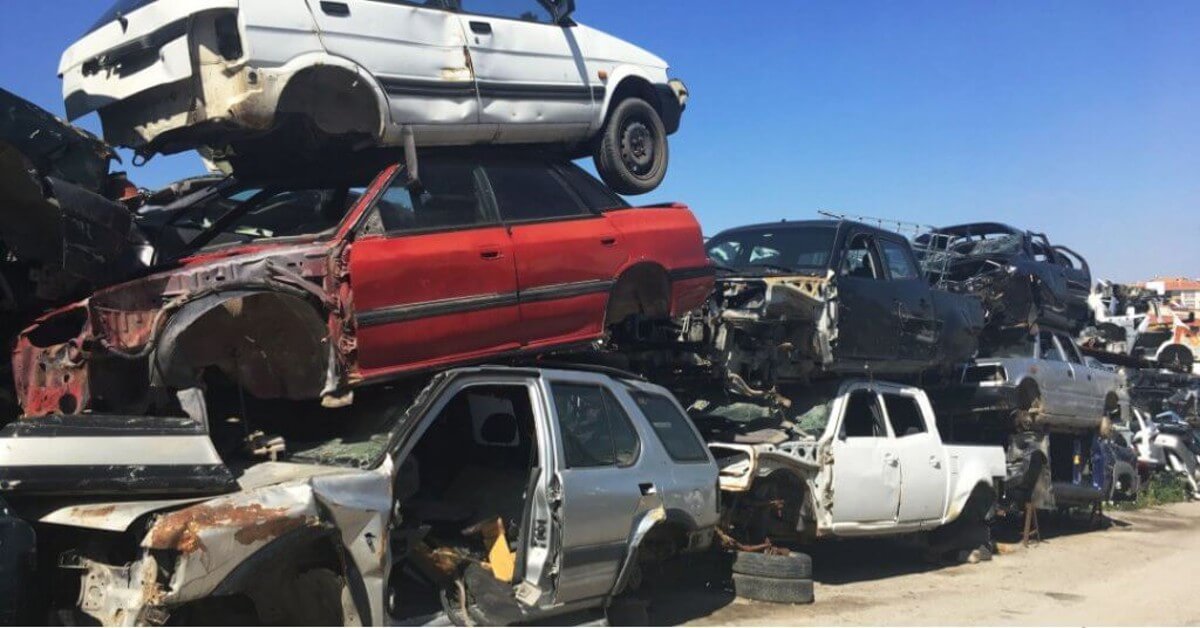Owning a car can be a delightful experience, offering convenience and independence in our daily lives. However, just like everything else, cars have a finite lifespan. Eventually, every car reaches a point where it becomes more of a burden than a convenience. The question then arises, “When to scrap your car?”
This article will explore various factors to consider when deciding to part ways with your beloved automobile.
Table of Contents
Signs of an Aging Car
Over time, your car will start showing signs of ageing, indicating that its days of reliable service may be numbered. Here are some key signs to watch out for:
- Frequent Breakdowns: If your car is continually breaking down, leaving you stranded on the side of the road, it might be a clear signal that it’s time to consider scrapping it.
- Rising Repair Costs: As your car gets older, the cost of repairs tends to increase. If you spend more on repairs than the car’s value, it might be financially wiser to let it go.
- Deteriorating Safety Features: With advancing automotive technology, newer cars have enhanced safety features. Older vehicles may lack the latest safety advancements, compromising your well-being on the road.
- Decreasing Fuel Efficiency: Older cars often become less fuel-efficient due to wear and tear, resulting in higher fuel consumption and increased expenses.
- Emission Failures: If your car consistently fails emissions tests, it not only harms the environment but also indicates potential underlying issues that may be costly to fix.
- Difficulty in Sourcing Parts: As car models become outdated, finding replacement parts can become increasingly challenging and expensive.
The Emotional Connection
Cars are more than just machines; they often hold sentimental value in our lives. You may have fond memories of road trips, family vacations, or even your first date in that old car. Deciding to scrap your car can be emotionally challenging, as it feels like bidding farewell to a trusted companion.
When to scrap your car? Ask yourself if the emotional attachment to the car clouds your judgment about its practicality. While the decision may be tough, remember that parting with your car can make way for new memories and experiences with a more reliable vehicle.
Financial Considerations
Making financial sense is one of the most crucial aspects of deciding when to scrap your car. Consider the following financial factors:
- Resale Value: If your car has a high resale value due to its make, model, and condition, selling it might be more profitable than scrapping.
- Trade-in Offers: Dealerships often provide trade-in offers for older vehicles. Explore these options to get a better understanding of your car’s value in the market.
- Depreciation: As cars age, their value depreciates. The longer you wait to sell or scrap it, the less money you’ll likely get.
- Future Repair Costs: Assess the potential repair costs over the next few years. If they outweigh the car’s value, scrapping becomes a sensible choice.
Environmental Impact
As conscientious citizens, we must consider the environmental impact of our actions. Older cars emit higher levels of harmful pollutants, contributing to air pollution and climate change.
When to scrap your car? If your car has a poor emission rating and is causing substantial environmental harm, it’s time to consider its eco-friendly disposal.
Recycling old cars can be an environmentally responsible choice. Many components, including steel, glass, and rubber, can be recycled and repurposed. This reduces the demand for raw materials and minimizes the overall carbon footprint.
Legal and Safety Aspects
In some regions, laws and regulations dictate when a car should be scrapped. These regulations often revolve around emission standards, safety requirements, and vehicle inspections.
When to scrap your car? Familiarize yourself with the laws governing vehicle roadworthiness and emissions in your area. If your car consistently fails safety inspections or does not meet the emission standards, you may be required by law to scrap it.
Moreover, if your car has been involved in severe accidents and its structural integrity is compromised, continuing to drive it poses significant safety risks to you and others on the road. In such cases, scrapping the car is the most responsible decision.
Weighing the Options
Deciding when to scrap your car involves carefully weighing all the factors mentioned above. Ask yourself the following questions:
- Is the cost of repairs exceeding the car’s value?
- Are safety and emissions becoming a concern?
- Is your car’s sentimental value overshadowing practicality?
- Can you afford a newer, more reliable car?
- Are there eco-friendly options for disposing of your car?
By answering these questions honestly, you can make an informed and rational decision about the fate of your beloved car.
Sustainable Alternatives
Instead of outright scrapping, consider sustainable alternatives for your aging car:
- Donate to Charity: Several charitable organizations accept car donations. Your old car could provide valuable assistance to those in need.
- Sell for Parts: If your car has valuable components in good condition, consider selling them individually.
- Trade-In for a New Car: Trading in your old car at a dealership can provide a financial incentive to purchase a newer, more fuel-efficient model.
- Recycle Responsibly: If scrapping is the only option, ensure you choose a reputable recycling centre that prioritizes environmentally friendly practices.
Conclusion
The decision of when to scrap your car can be emotionally and financially challenging. However, by carefully considering the signs of ageing, financial implications, environmental impact, and safety aspects, you can arrive at a well-informed choice.
Remember, parting with your old car opens up opportunities for new adventures and a more reliable ride. So, when the time comes, bid your trusted companion a fond farewell and embrace the exciting road ahead!


